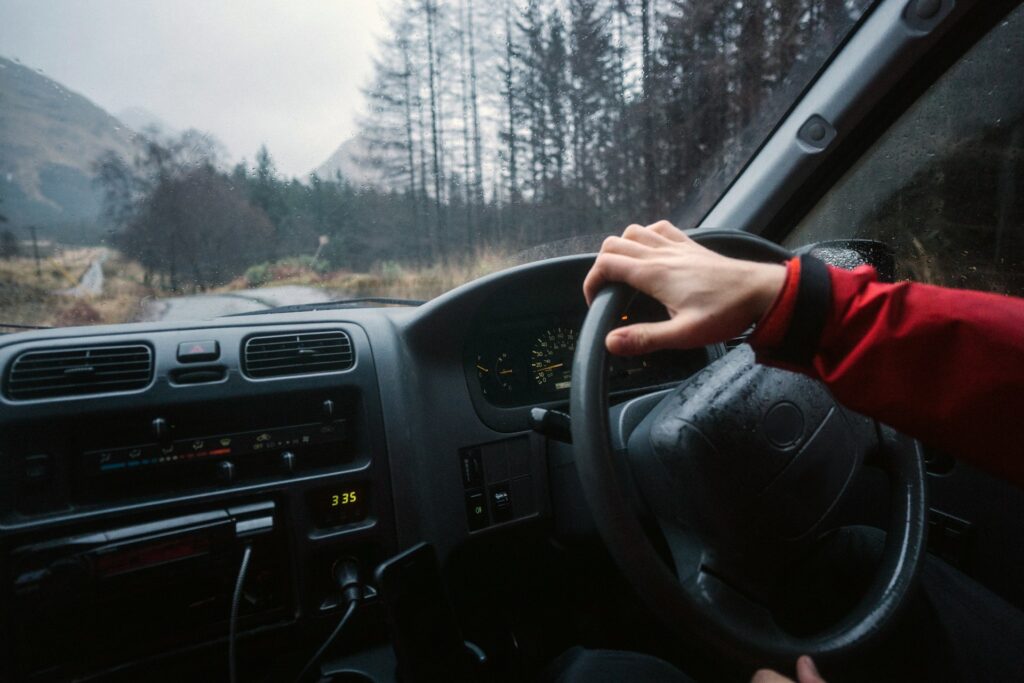Though the climate is changing, driving a car still represents a necessity for so many. But to minimise the environmental impact of driving, as well as saving money in the process, it’s important to adopt a fuel efficient approach when behind the wheel. This is all about practising good driving techniques to minimise the amount of fuel you use, leading to both environmental and financial benefits in the short and long term.
When taking to the road winter, cars become less fuel efficient as a result of the colder conditions. Due to a combination of factors, including warming up the engine’s oil in cold weather, and the use of window defrosters, heaters, seat heaters, lights, and windscreen wipers, winter fuel consumption is nearly always higher than in summer, with motorists paying the price.
While additional winter costs are unavoidable, there are ways to minimise the consequences. Here are our 7 ideal tips for fuel efficient driving this winter.
Don’t Leave Your Car In Idle
Rather than leaving your car to idle for several minutes before driving, it’s always best to drive off straight away once you’ve initiated the engine. Leaving your car to idle has no effect on the car’s performance, and while your vehicle is sitting in the driveway with its engine on, fuel is being wasted and air polluted.
Lots of drivers want to let the engine warm the car up to defrost ice on the windshield, however, it’s best to use a scraper and de-icer on the windshield to clear ice prior to getting in, and then to get on with your journey as soon as possible to make the best use of your fuel.

Drive Smoothly & Anticipate The Road
Aggressive driving habits are one of the biggest fuel wasters on the road. Harsh acceleration, heavy braking, and erratic speed changes can increase fuel consumption by up to 40%. Instead, aim for smooth, gradual acceleration and try to maintain a steady speed wherever possible. Anticipate traffic flow, traffic lights, and roundabouts well in advance so you can ease off the throttle early rather than braking sharply. On motorways, using cruise control can help maintain consistent speeds and improve efficiency.
By adopting a calmer, more measured driving style, you’ll not only save fuel but also reduce wear on your brakes and tyres. For drivers keen to understand and improve their habits behind the wheel, telematics insurance could offer a better fit, providing insights into driving patterns whilst potentially lowering premiums for safer, smoother drivers.
Avoid Short Trips
Try to get all your car journeys done in one longer trip, rather than heading out on lots of short journeys. As your car runs over the course of a drive, it heats up to its optimum temperature, and the fuel injector gradually reduces the amount of fuel being injected into the engine.
When driving short distances, the engine never reaches this optimum temperature. By linking your journeys together, you can keep the engine warmer and more fuel efficient, rather than making it start from cold every time. Where possible, consider whether a short errand could be completed on foot or by bike instead. Now there’s a thought.
Read: How to be greener in your daily life in 2026

Limit Use Of Electrics
Think about the electrics being used in your vehicle, and whether you need all of them on. During winter, cars use their lights more, have their heater fan running, have heated front and rear windows on to clear the frost, and might even have heated seating switched on.
All these electric systems are putting a strain on the battery, which is in turn making the engine work harder and burning more fuel – which is even more pertinent for electric cars, incidentally. Try putting on an extra layer or two before your drive and keeping the seat heating off, or de-frosting your windows before driving rather than having the engine do it for you.
Obviously, safety comes first – never compromise on visibility or essential lighting – but being mindful of unnecessary electrical drain can make a measurable difference over time.
Ensure Your Tyres Are Inflated
Make sure your tyres are properly inflated as deflated tyres will cause additional drag and slow your car down. This is extra important in winter as low air temperatures cool the tyres down and reduce their pressure further, the knock-on effect of which can negatively impact fuel efficiency. Under-inflated tyres increase rolling resistance, meaning your engine has to work harder to maintain speed.
Check your tyre pressure at least once a month and always before long journeys, referring to your vehicle handbook for the correct PSI. Keeping your tyres healthy is always a good idea, however, it’s even more crucial in winter when your car is facing wet and icy roads.

Reduce Excess Weight & Drag
It’s easy to let your car become a mobile storage unit, but every extra kilogram your vehicle carries requires more fuel to move. Clear out unnecessary items from your boot and back seats – golf clubs, tools, or that bag of old clothes destined for the charity shop can all add up. Similarly, external accessories like roof boxes, bike racks, and roof bars create aerodynamic drag, significantly reducing fuel efficiency, especially at higher speeds. If you’re not using them, take them off.
Even something as simple as driving with your windows down at motorway speeds can increase fuel consumption due to added wind resistance. Small changes to reduce weight and drag can lead to noticeable savings at the pump.
Get On Public Transport Or Carpool
It’s now irrefutable. The planet is burning and things need to drastically change. So instead of seeking a saving on your car travel, it might be prudent (well, not ‘might’, it definitely will be prudent) to stop using your car at all, and prioritise walking, cycling or public transport except in emergencies. Your bank balance will be healthier, and more importantly, so will you and the planet. There really is no reason not to.
If your heart really is set on car travel, then an alternative, more affordable (not to mention sustainable) way to travel could see you starting up a carpool system. If your work requires you to travel for a conference, for example, then organising a carpool which takes multiple team members to the same destination is a much more cost-effective way of travelling for all involved. Not only does carpooling cut fuel costs per person, but it also reduces the number of vehicles on the road, easing congestion and lowering overall emissions.





